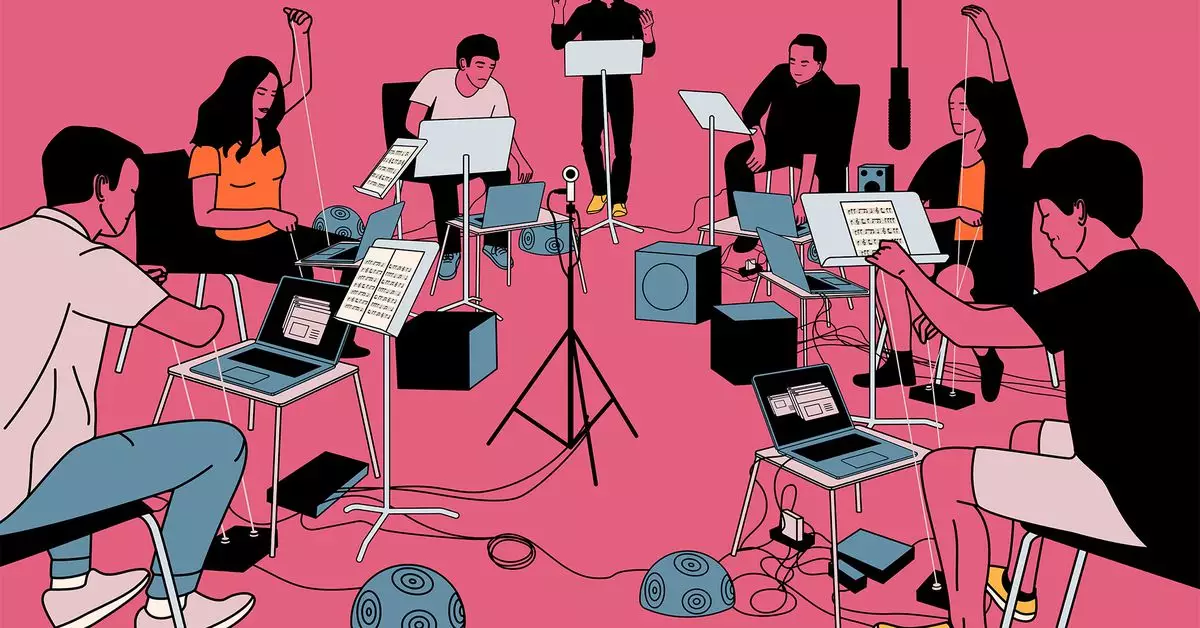In the rapidly evolving landscape of music creation, one figure stands out for his unique approach: Ge Wang. An associate professor at Stanford’s Center for Computer Research in Music and Acoustics, Wang is not your typical music educator. His insights into the relationship between technology and music extend far beyond conventional methods. He leads the renowned Stanford Laptop Orchestra, co-founded the innovative music app Smule, and developed the programming language ChucK, which transforms code into captivating sound. With over a decade of experience, Wang’s depth of understanding about the intersection of computer science and artistry is invaluable as we venture into the future of music production.
While many musicians rely on advanced software to produce music, Wang deviates from this norm by utilizing computers to create distinctly “computer music.” This term represents a concept that does not merely apply traditional musical frameworks to digital platforms but instead explores the expressive potential of technology itself. In a recent episode of The Vergecast, Wang discusses the need for musicians to engage with technology rather than allow it to control their creative processes. He emphasizes the importance of playing with tools rather than becoming slaves to their mastery, promoting a philosophy that values experimental engagement over rote learning.
The rise of artificial intelligence in creative pursuits has sparked discussions regarding its influence on individuality and artistic expression. Wang’s observations penetrate the mere surface of convenience brought by AI-driven tools, interrogating the very essence of creativity in a tech-saturated environment. With myriad platforms offering an unprecedented ease of access to music production, one must ponder whether this ease dilutes the significance of creative effort. Are musicians reduced to operators of sophisticated machines, or can they leverage these technologies to enhance their authentic voices? The conversation with Wang delves into these pressing questions, challenging listeners to reconsider their relationship with technology.
Amidst the technological advancements designed to simplify music creation lies a profound dilemma: how do we retain the essence of what makes artistry meaningful? As lessons from Wang suggest, what constitutes our human experience in a world increasingly dictated by efficiency is anything but straightforward. Creators face a paradox—tools are available to streamline processes, yet the risk remains that this streamline could render artistry less distinct and engaging. Wang’s reflections advocate for an equilibrium wherein musicians actively engage with their craft while embracing technology, cultivating environments that foster innovation while staying true to personal narratives.
As we stand at the cusp of a significant shift in music production and understanding, Ge Wang’s perspectives serve as a guiding beacon. His assertion that creativity must thrive in a landscape defined by tools developed to enhance our capabilities invites musicians and technologists to rethink their roles. The blend of artistry and technology isn’t merely about writing symphonies or sending emails with more efficiency; it’s about preserving the soul of creativity in an increasingly homogenized world. As listeners and creators, we must navigate this terrain thoughtfully, ensuring that the hard work and emotional connection intrinsic to music remain at the forefront of our explorations. Through this lens, Wang’s insights could help chart a compelling path for the future of music.

